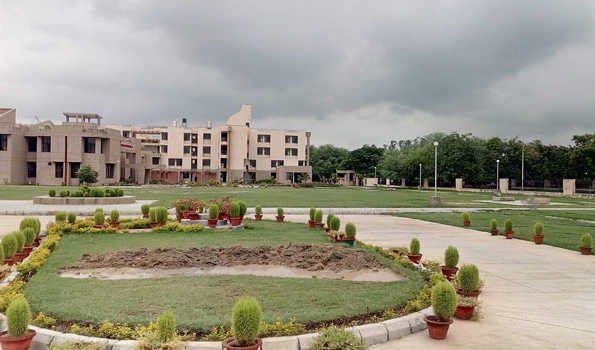IIT Kanpur signs MoU with Centre for AI-enabled Analyzing Grievances Data project

New Delhi: Indian Institute of Technology (Kanpur) has gone for a Tripartite Memorandum of Understanding (MoU) on Tuesday with Union government for the project “Analyzing Grievances Data using Artificial Intelligence”.
Indian Institute of Technology, Kanpur, signed the MoUs with Ministry of Defence (Department of Defence) and Department of Administrative Reforms & Public Grievances (DAR&PG) in the presence of Minister of Defence Rajnath Singh and union Minister of State for Personnel Dr Jitendra Singh in presence of Deputy Director, IIT Kanpur Prof S. Ganesh through video conferencing to conduct and develop the exploratory and predictive analysis of Public Grievances received in the portal of Centralized Public Grievance Redress and Monitoring System (CPGRAMS) using the tools of artificial intelligence, machine learning and statistics.
An IIT(K) statement here said the project “Analyzing Grievances Data using Artificial Intelligence” is being collaborated with the faculty of IIT Kanpur, Prof Shalabh, Dept of Mathematics and Statistics, Prof Piyush Rai and Prof Nisheeth Srivastava from the Dept of Computer Science and Engineering.
The Ministry of Defence and DARPG receive grievances from people from all parts of the country which are of different nature. These grievances are addressed by corresponding divisions of various Ministries in the Government.
The current project aims at developing the predictive models which can analyze the cause of grievances, provide insights into the nature of grievances, infer any Spatio-temporal trends in the data and predict the quality/severity/sentiment of the grievances.
“As soon as the complaint comes, it is planned that it gets automatically directed to the concerned officer, it is solved, and feedback is obtained automatically without requiring human intervention. Another aim is to predict the quality of redressal response by the serving officer. The analysis and modelling of data will help the ministry in bringing about systematic changes and policy interventions. The analysis will help the ministry of defence to assess if more complaints are coming from any specific areas/regions/cities etc,” the statement said .
The developed dashboard will help the responsible officer to take corrective measures in time and preferably before the problem becomes large. Such models will help the ministry in taking preventive steps by timely interventions so that the number of grievances is reduced over a period of time. The responses to the people by the ministries will become easier, swifter, faster and more efficient. The ministries can also make systematic changes in the policy designs for the welfare of the people of the country, it added .





